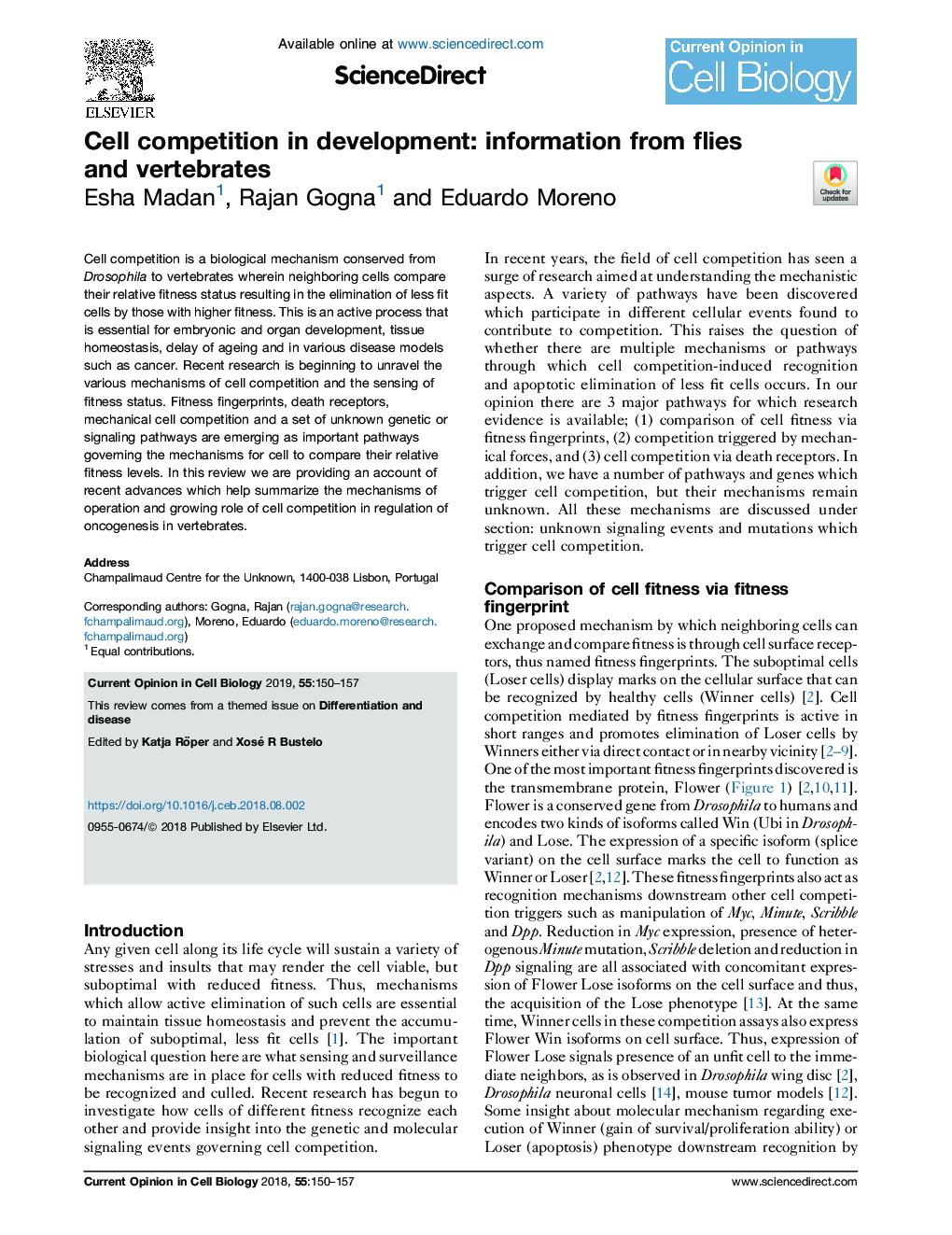| Article ID | Journal | Published Year | Pages | File Type |
|---|---|---|---|---|
| 9954496 | Current Opinion in Cell Biology | 2018 | 8 Pages |
Abstract
Cell competition is a biological mechanism conserved from Drosophila to vertebrates wherein neighboring cells compare their relative fitness status resulting in the elimination of less fit cells by those with higher fitness. This is an active process that is essential for embryonic and organ development, tissue homeostasis, delay of ageing and in various disease models such as cancer. Recent research is beginning to unravel the various mechanisms of cell competition and the sensing of fitness status. Fitness fingerprints, death receptors, mechanical cell competition and a set of unknown genetic or signaling pathways are emerging as important pathways governing the mechanisms for cell to compare their relative fitness levels. In this review we are providing an account of recent advances which help summarize the mechanisms of operation and growing role of cell competition in regulation of oncogenesis in vertebrates.
Related Topics
Life Sciences
Biochemistry, Genetics and Molecular Biology
Cell Biology
Authors
Esha Madan, Rajan Gogna, Eduardo Moreno,
